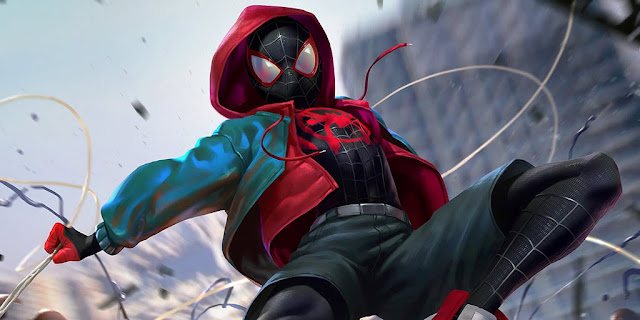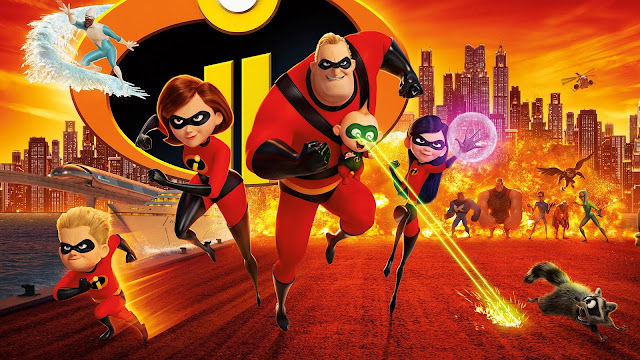“The Balloonman” Heroic Analysis (3 of 100) of James Gordon & Young Bruce Wayne from "Gotham"
In the third installment of “Gotham,” we get more
development of Bruce Wayne and Oswald Cobblepot than we do Jim Gordon, but I’m
okay with that. The show has already begun to reveal familiarities that have
cropped up in every episode, which is starting to make the Gordon aspect of the
show seem a little dry and stilted. Everything else is really entertaining though. If the show is going to succeed, the
writers will need to do more with Gordon and Harvey to switch up the monotonous
good-cop, bad-cop routine, and quickly, not just repeat what is done over and over again in past episode of the show, or that is constantly done in other cop dramas such as "CSI" or "Law and Order". Harvey and Gordon have a montage where they search
for a criminal and question random street thugs - done it. They both make a house call
and end up in a cop chase with potential suspects - done it. And even the ending where
Harvey almost allows the “vigilante” to be pulled away by the balloon was to be
expected because Harvey is morally incomparable and does not care about
justice, just personal vendettas, safety, and revenge (See him punching the
criminal who had already surrendered because she beat him up) - done it.
The most interesting development of Gordon’s character are
his interactions with the cop duo Renee Montoya and Crispus Allen. I think these
interactions are really intriguing because we have good cops butting heads in a
clever way. I hate that Allen and Montoya don’t see the good in Gordon, or that
Gordon does not trust them in certain ways, but I look forward to seeing the
climactic confrontation between them. I really hope to see a good outcome, but
in Gotham I don’t suspect that things will end up well for Allen and Montoya (I
know a little bit about their comic origins, but I know for certain that Gordon
becomes a commissioner so it goes well for him, at least). In this way, Allen
and Montoya serve as Threshold Guardians
and occasionally herald figures
for Gordon. They are not shadows because they want the same thing that Gordon
wants – Gotham to be as crime free as possible.
Briefly, to touch on Bruce Wayne’s development, it has a subtle
treatment. Wayne is doing his own investigative research on his parents’
murderer (and seems to be pretty good at it). He is testing himself again by
not eating meals regularly, and we even see him have an awesome sword fight
with Alfred.
We get a great scene with Barbara and Montoya, and a lot is
revealed. Barbara smokes weed – nothing surprising there. The two had a
relationship in the past, which I can’t wait to learn more about. In the way
the show has been channeling its own pilot with the Harvey-Gordon development,
Montoya tells Barbara more “information” about Gordon that Barbara should be “wary”
of – just like the pilot. Then, the stunner - Montoya tries to kiss Barbara,
and Barbara pulls away. I am glad that Barbara trusts Gordon so much, he
deserves someone like her in his corner as an ally and possible hero of her own episodes down the line.
In the shadow camp we get some good, not great, scenes with
Fish, Falcone, and Cobblepot. The struggle to rise up in ranks is tightening
the tension as Fish and Falcone play their chess match – and while Oswald
Cobblepot kills and lies his way through, though there isn't really anything new brought to the table by the episodes - the actors still bring great things to the table, but are doing the most with what they have been give to work with. Next week’s episode should hopefully shake
things up a lot with the interaction between Cobblepot and Gordon. Now, Gordon
is not safe (he never was, really) and the crime struggle can be disturb very
quickly with Cobblepot's return to Gotham.
This episode is very hefty in the way it discusses
vigilantism and the struggle of justice – who deserves it and who should give
it. Gordon is a straight laced cop who plays by every rule and is completely
against vigilantes. Harvey is for them if it makes his life easier, and against
them if it threatens his safety. Allen and Montoya are more grey, and I’d bet
that they’d be willing to go around certain laws to make a lawful society. The Balloonman, a shadow character for Gordon in the episode (or threshold guardian when considering the potential
overall diegetic time frame) represents a vigilante that will murder to be a
hero, but the most subtle and successful reveal was young Bruce Wayne’s "interest" in becoming a vigilante. Wayne does not outright say it, but it is
strongly hinted with the way he responds when Alfred talks about how the
Balloon man kills people. From what many people know of Batman, he is vigilante
that does not kill, because (to use Gordon’s words from this episode) “Everybody
has to matter or nobody matters. Otherwise people lose faith. That’s when you
get vigilantes.” Wayne says, “He killed people, and that made him a criminal
too,” so we can suspect that the Batman to be will be against killing people.
Sadly the episode did not really move further in terms of
characterization on a larger scale. Selina ran away, and the shadows are still in the
same place they were at the beginning of the episode, save for Fish making a
major play against Falcone and Oswald returning to Gotham. Allen and Montoya
are still grasping at straws trying to bring down Gordon, and the Gordon-Barbara relationship is still not broken, even with efforts from Montoya. Overall, the episode could have been tighter and maybe not have done so much that it has already done in the previous two episodes. I think the show can tighten it's pace and move a little faster, but most new shows have the same issue. Still, it is engaging and exciting to see Gotham "without" a Batman



Comments
Post a Comment